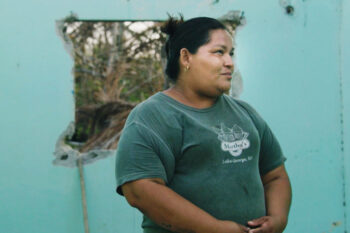Overproduction of cash crops, vast monocultures of chemical-dependent grains and massive animal agriculture operations are putting major stress not just on U.S. farmland — where they’re contributing to soil erosion, groundwater depletion and climate change — but these practices are also impacting areas such as the Brazilian Cerrado, where more than half the huge savanna has been converted to soy. Compounding these issues is the fact that roughly a third of all food produced in the U.S. is wasted, a statistic that also bears out globally.
As the 2023 growing season begins in the Northern Hemisphere, author and food journalist Tom Philpott — whose most recent book, “Perilous Bounty: The Looming Collapse of American Farming and How We Can Prevent It,” details these problems — joins the Mongabay Newscast to talk about the most problematic practices, how they permeate the world’s food systems and how techniques like agroecology and agroforestry could change the game and provide a way out.
Agroecology is a sustainable agriculture practice based on Indigenous and traditional methods of growing food that can address most of the aforementioned challenges while slowing the biodiversity crisis, according to the IPCC’s 2022 report. Its methods can increase the nutrient profile of soils, protect it from erosion and provide a more diversified set of crops for farmers to sell.
The question is, why don’t we do it? Philpott, who nowadays dives into these topics as a research associate for the Johns Hopkins Center for a Livable Future, says quarterly profits are the reason the U.S. focuses on the overproduction of cash crops, such as California’s almond farms, which he calls an “ecological catastrophe.” Ultimately, diversifying the crops we produce and incorporating practices such as agroforestry is the most promising solution, he says.

Additionally, addressing the colonial history of U.S. food production is something Philpott says he supports, and sees progress with movements such as LANDBACK and Black Agrarianism.
However, he says policy shifts are also needed and could come via the agricultural reform bills introduced to Congress by U.S. Senator Cory Booker. The passage of these would be steps in the right direction for reforming some of the most unsustainable practices and protecting fragile biodiversity, he says.
“We don’t have to have an agriculture that consumes the very ecologies that make it possible and leads to this catastrophic loss of species that we’re in the middle of right now,” says Philpott.

Related reading:
- From traditional practice to top climate solution, agroecology gets growing attention
- ‘During droughts, pivot to agroecology’: Q&A with soil expert at the World Agroforestry Centre
- American agroforestry accelerates with new funding announcements
Subscribe to or follow the Mongabay Newscast wherever you get podcasts, from Apple to Spotify, and you can also listen to all episodes here on the Mongabay website, or download our free app for Apple and Android devices to gain instant access to our latest episodes and all our previous ones.
Banner Image: A center-pivot irrigation system in Southern California. According to NOAA (National Oceanic and Atmospheric Administration), as of mid-July, 2021, 89% of the U.S. West was in drought and 25% was in exceptional drought conditions. Image by Steve Harvey via Unsplash.
Mike DiGirolamo is Mongabay’s audience engagement associate. Find him on Twitter @MikeDiGirolamo, Instagram, TikTok and Mastodon.
Citations:
Holden, N. M., White, E. P., Lange, M. C., & Oldfield, T. L. (2018). Review of the sustainability of food systems and transition using the internet of food. npj Science of Food, 2(1). doi:10.1038/s41538-018-0027-3
Quisumbing King, K., Wood, S. D., Gilbert, J., & Sinkewicz, M. (2018). Black agrarianism: The significance of African American landownership in the rural south. Rural Sociology, 83(3), 677-699. doi:10.1111/ruso.12208
Transcript
Notice: Transcripts are machine and human generated and lightly edited for accuracy. They may contain errors.A transcript has not been created for this podcast.

















